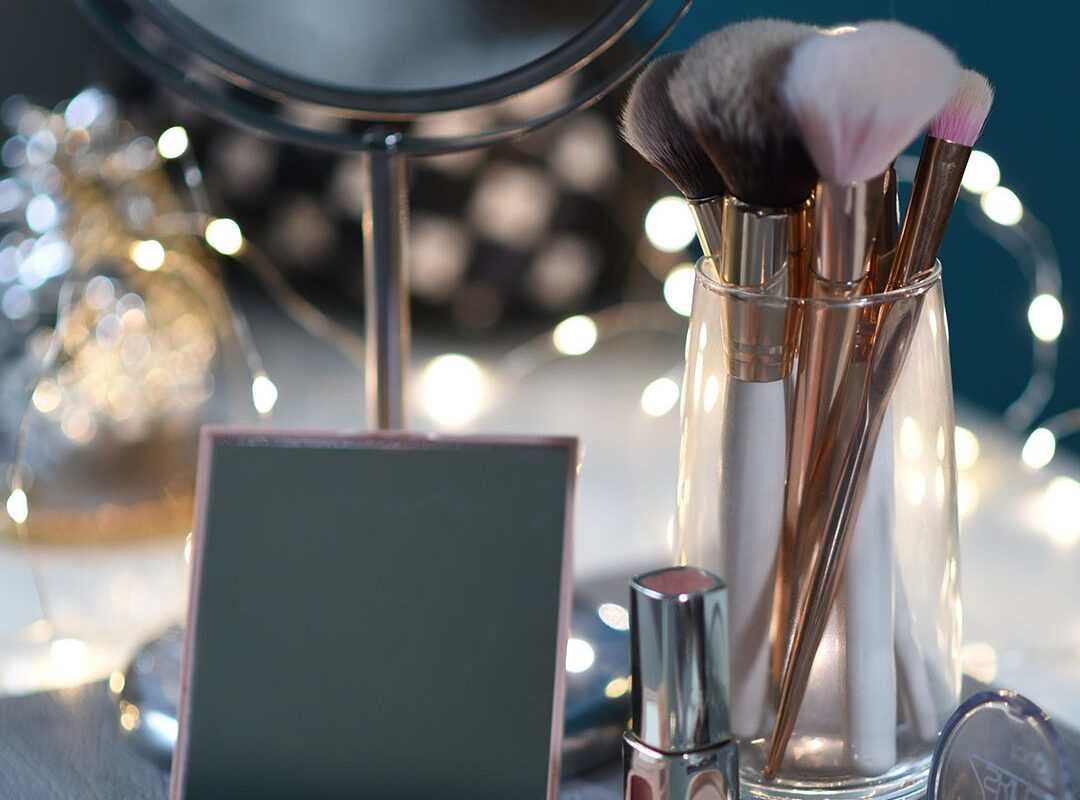There’s nothing worse than a mouldy blending sponge or that rancid smell that comes from a perfume you’ve left on the bottom shelf for too long. After you’ve completed the critical job of picking the best and most efficient makeup and skincare products, knowing where to store them, and how to safely use them, is of utmost importance. “All makeup products and tools should be stored in a designated cool and dry place, away from moisture. That means you definitely should not store your makeup in the bathroom. Instead, maintain a vanity kit or a drawer for your makeup products to make sure they’re not contaminated with bacteria from other products or due to high humidity,” recommends Dr Harshna Bijlani, medical head, The AgeLess Clinic. Apart from the shelf life mentioned on the back of the product (like 12M or 9M for example), changes in colour and texture are the tell-tale signs of your makeup expiring. Post-dated makeup products can cause infection (especially of the eyes), acne breakouts and irritation. “When you see a a white-ish residue on lipsticks or have difficulty in applying them, or spot the formulas of other products separating (when the water/oil separated from the powder), that’s the time to trash the product,” she explains.
Storing rules are not just restricted to skincare and makeup. If your favourite citrus fragrance is not giving you a similar whiff of freshness as when you first bought it, chances are that it might be exposed to sunlight. Perfumer Rajiv Sheth, CEO and creative director of All Good Scents, reveals that it’s not necessary to store the fragrances in their original boxes, but is critical to save them from sunlight and heat. “Stored in a correct way, a fragrance can last as long as five years. To increase the shelf life, it’s best to store them away from sunlight in cool, dark places. You can even keep them even in refrigerator at the peak of Indian summer,” he explains.
How long can you use your skincare products, and how to store them
If you’re keeping your cleansers and exfoliators by your washbasin, you’ll want to use them up quickly—especially if they come in jars or tubes. If it’s a product that doesn’t need to be used immediately, Dr Biljani suggests stowing them in cool, dark areas like a vanity or bedside table, as mould and bacteria grow quickly in a warm, steamy bathroom.
Cleansers
Dr Bijlani recommends that once you open your cleanser, it’s best to dispose it one year from the opening date, even if the expiry reads longer. After being exposed to external factors, the quality of the face wash will deteriorate quickly, especially if it is stored next to the washbasin where the air is rife with moisture.
Moisturisers
Like cleansers, moisturisers should also not be used for longer than a year once out of packaging. If you start noticing a change in the colour, texture or smell of the product, toss it out. “Moisturisers with an airless pump [in the bottle] are less likely to be exposed to external factors and can last up to a year, but the ones in a jar should not be used for longer than six months because they will stop being effective,” advises Dr Bijlani. Treat eye creams the same way, since the thin skin around the eye is particularly more sensitive.
Serums
Serums have a rigid shelf life, and using them post the expiration date is a definite no-no according to Dr Bijlani. Leaving the bottles uncapped or not tightly capped could potentially ruin the efficacy of your product overnight. “I personally think it’s great to have skincare stored in a designated temperature-controlled environment like a mini skincare fridge. Keeping the products outside, especially in the bathroom (as people often tend to do), can cause fungal growth because of humidity and high temperatures,” states Dr Bijlani. Wondering what to stash in the fridge? Vitamin C, retinol and all those antioxidants that tend to oxidise quickly must be your first choices. Aloe vera, calamine, toners and masks stay better in cold temperatures as well.
How to store your makeup products to reduce chances of infection or acne
Again, Dr Bijlani’s advice is to keep makeup in a kit or drawer that is not directly exposed to sunlight, or to moisture from steam or water. Sunlight can accelerate the ageing of a product by heating it up, which can further break down active ingredients, so they’re best left off the windowsill. In the bathroom, water will condense on the surface of certain cosmetics and can start to form mould.
Mascara
“Every time you remove your mascara wand and put it back in, you’re adding more bacteria to the product. Mascara and other liquid eye products have the shortest shelf life because they can easily cause eye infections if used for too long or exposed to bacteria too often,” warns Dr Bijlani. You should replace your mascara every three to six months depending on how often you use it.
Lipstick
As long as you’re storing your lipstick in a cool, dry place, you should be able to use it for up to two years. Dr Bijlani cautions against keeping a lipstick in your car or at the bottom of your handbag, as the heat can melt and affect the formulation.
Powder eyeshadows, blush and powders and eye pencils
Since powder cosmetics do not contain liquids, the rate of bacteria growth is lesser than other cosmetics. You can use these for up to two years, but make sure you clean your brushes well. In case of eye pencils, Dr Bijani advises that “you keep a designated sharpener for them, and clean your sharpener every time you use it as eye pencils tend to leave product behind when sharpened.”
Foundation
“A water-based foundation can last you up to a year, while an oil-based option can be used up to 18 months or until you start to see the formula separate. To make sure these stay with you for a long time, try to not contaminate the product by touching the tip of the pump or the neck of the bottle,” suggests Dr Bijlani.
Makeup brushes
Makeup brushes and sponges are porous to allow the makeup to spread well, which also in turn makes them easy targets for trapping bacteria, dead skin cells, oil, dirt and remnants of makeup on and between the bristles. So how often should you clean them? Dr Bijlani says that depends on how frequently you use them. “If you use your brushes daily, I would recommend cleaning them weekly. However, when it comes to eye brushes or beauty sponges, I would recommend cleaning them after every use, because bacteria develop very easily on brushes that are used for creamy products like foundations, concealers, mascaras, lipsticks, or cream eyeshadows.”





